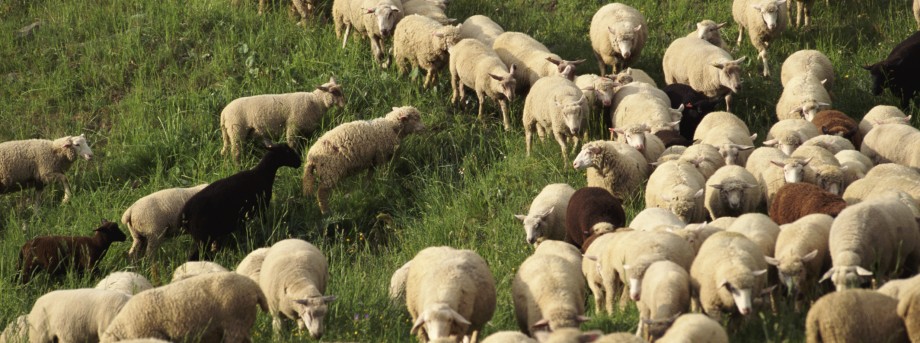The University of Nottingham
 Exchange online
Exchange online
Research Exchange
Schmallenberg virus — a ‘grim’ picture for 2013

Researchers at The University of Nottingham say Schmallenberg Virus — which causes deformities and neurological defects in unborn lambs and calves — has made a grim return this year. Virology experts from the School of Veterinary Medicine and Science are already seeing deformities and neurological defects in early lambing flocks.
Data collected by students from the Nottingham Vet School suggests that this year losses could be as high as 30 per cent on some severely affected holdings.
Dr Rachael Tarlinton, a registered veterinary surgeon and an expert in virology said: “Things aren’t looking good for this year’s sheep farmers. We are already seeing a lot of reports of abnormalities in the early lambing stock, as well as ewes requiring caesarean births. If the ewe can’t lamb or has been damaged too much it is kinder, from an animal welfare point of view, to euthanase the ewe as well. It is a grim picture.
Last year over 6,000 farms in northern Europe reported the birth of deformed lambs or calves. More than 700 cases of the Schmallenberg virus were reported in the UK last year and the first cases are also being seen in Northern Ireland.
Discovered in the German village of Schmallenberg in the autumn of 2011 the virus — which cannot be spread to humans — is carried by wind-blown biting midges. It will generally cause mild or no disease in adult animals but if the animal is pregnant the virus replicates in the nerve cells of the foetus and, depending at what stage they have reached in the pregnancy, this leads to abortion, abnormalities of the skeleton and neurological defects.
The virus was carried across from Europe by wind-blown midges and the UK saw its first cases in lambs and calves last spring.
Dr Tarlinton said: “It is likely the virus is here to stay. Because the midges are all over Europe, the virus will eventually settle down to be endemic. When this happens we hope that most animals will be infected in their first year of life before they get pregnant and can build up immunity. Most cattle and sheep in the area where the virus was first identified have had it. It is assumed that they are now immune and won’t have another affected lamb. We are concerned about the animals that were infected after being mated in autumn last year.”
A vaccine is currently going through the registration period but it won’t be available until at least summer this year.
The Scarsdale Veterinary Group is one of the University’s Clinical Associates. Their Pride Veterinary Centre covers the whole of Derbyshire and parts of Leicestershire and Staffordshire. They say every farm they have tested so far for the virus has proved positive. To give an update on the situation they will be holding an open meeting for farmers at 7.30pm on Thursday 31January at the Pride Veterinary Centre, Riverside Road, Derby, DE24 8HX.
Leave a Reply
Other News

Top prize for quantum physicist
A University of Nottingham physicist has won a prestigious medal from the Institute of Physics for […]

Zero carbon HOUSE designed and built by students comes home
Design and construct a low cost, zero carbon, family starter home, transport it to Spain, build […]